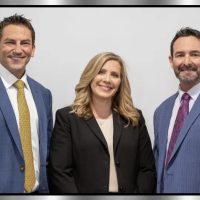Hold Harmless and Liability Waivers: Make Them Enforceable

Let’s say that you are in a business or an industry where you have concern that you could end up getting sued—particularly sued for injuries. There are a lot of ways to run your business as safely as possible, but you are concerned there may be no guaranteed, foolproof way to insulate yourself from liability.
How About a Hold Harmless Agreement?
The best thing to do may be to draft a waiver of liability or a hold harmless agreement.
But while these agreements are legal and enforceable in Florida, they are carefully scrutinized by courts. And the last thing you want is to be doing business thinking you’re safe from liability, only to find out later that the hold harmless you thought was protecting you, was in fact unenforceable.
Be Clear and Unambiguous
The big cardinal rule in liability waivers or hold harmless agreements is to be clear and unambiguous—especially if there are average everyday consumers (as opposed to other more savvy businesses) signing your waivers.
Using complex legal language, or burying the waiver somewhere in the middle of a larger contract are things that will almost guarantee a court doesn’t enforce your hold harmless agreement.
Your own Negligence
If you are trying to insulate yourself from liability from your own actions, errors, or omissions, you need to say that. Just saying you “can’t be sued” or even saying that you “aren’t liable for negligence” will not suffice, if you don’t specifically say that the signer is waiving your negligent acts as well.
Inherent Dangers
Sure, you want to make sure you aren’t sued for your own negligent acts. But what about getting sued for injuries that are just a natural part of your business?
For example, if you have an equestrian park, a skating rink, or a go-cart park, even when people do the activity legally, carefully, and follow all safety rules—accidents and injuries can still happen. So, make sure your waiver says that the signer is waiving even those injuries that may naturally be expected to occur from the activity itself.
Who is Signing the Waiver?
You also need to give thought to who is signing the waiver—particularly if your business caters to minors.
Only a parent can legally waive the rights of a minor, but in some cases, an authorized guardian can as well. Your waivers should identify the relationship between the signor, and the minor, and it should not be considered valid if it isn’t a parent or guardian signing the document.
Other Protections
Going beyond just the waivers of liability, you can also dictate where any lawsuit must be brought or what state law applies, in the event that the hold harmless is not found to be enforceable. This gives you an extra layer of protection, and a deterrent to people trying to override your hold harmless agreement.
Let us review your business contracts to make sure they do and say what you need them to do. Call our West Palm Beach business attorneys at Pike & Lustig with any questions you may have about your business.
Sources:
content.next.westlaw.com/practical-law/document/I935571ddd37b11ebbea4f0dc9fb69570/Release-and-Waiver-of-Liability-Potentially-Dangerous-Activity-FL?viewType=FullText&transitionType=Default&contextData=(sc.Default)
forms.legal/free-fl-release-waiver-form/
